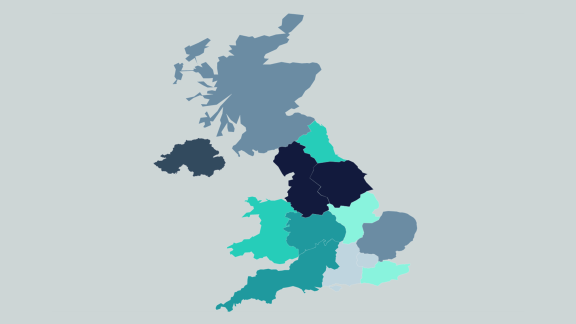
There are six employment check standards that employers must undertake as part of their recruitment processes.
Read the background information about the purpose of the standards, who they apply to and how to meet compliance. We also recommend viewing our frequently asked questions.
We regularly review and update the standards in line with policy and legislation changes. A summary of updates history can be found at the bottom of this page.
This standard sets out the requirements to verify the professional registration (where relevant to the post) and qualification checks that need to be carried out for all prospective NHS employees.
Introduction
1.1 What is a professional registration and qualification check?
1.1.1 Professional registration and qualification checks are carried out to assure that individuals are qualified and competent to perform the role. This involves verifying that the individual:
- has the necessary skills and qualifications for the role, and
- is registered with the relevant professional body (if applicable) and they meet the required standards of training, competency and conduct to practice safely in their chosen profession.
1.1.2 In all cases, only the qualifications that form part of the requirements for the position being applied for will need to be verified.
1.2 Importance of professional registration and qualification checks
1.2.1 Professional regulation is intended to protect the public, ensuring that those who practice in a particular profession are committed to providing high standards of care.
1.2.2 There are currently eight main regulatory bodies in health, with more than one million health professionals on their registers. Their main functions include:
- establishing standards of competence, ethics and conduct
- establishing standards for training
- keeping a register of those who meet the standards
- dealing with registrants who fall short. For example, by placing conditions on their registration or removing them from the register.
1.2.3 Qualification checks verify the information about the individual’s educational and/or professional qualifications outlined in their application form. This verification helps to ensure the individual is capable of carrying out the role.
Professional registration checks
2.1 Minimum requirements
2.1.1 Employers must check the registration of all healthcare professionals with the appropriate regulatory body before allowing the individual to start employment. This will verify that:
- the individual is actually the person registered with that regulatory body
- there are no restrictions to their registration that would affect their ability to undertake the duties of the role being offered
- there are no pending investigations on their fitness to practise that must be considered by the employer.
2.1.2 Employers must have the consent of the individual and their registration number to check their registration and fitness to practise.
2.1.3 Checking an individual’s professional registration in itself does not guarantee their suitability for a role, employers must always seek the necessary assurances by carrying out the full range of checks outlined in the other NHS Employment Check Standards.
2.1.4 Where relevant to the role, it should be made a contractual condition for individual’s to maintain any registration that might be relevant to their profession for the full term of employment.
2.1.5 It will also be essential for employers to have appropriate mechanisms in place to respond to any actions that a regulatory body may take which would affect an individual’s registration or fitness to practise.
2.1.6 Further information about how to check registration, license and fitness to practise with each of the regulatory bodies can be found via the links below:
2.1.7 Employers must also check that there is no known information held about registered healthcare professionals on the healthcare professional alert notice (HPAN) system. If an individual is subject to an alert notice, then employers must check whether there are any restrictions which would prevent them from undertaking the duties of the role, before allowing them to commence employment. See further information about the HPAN system in section 6.
2.2 Recruiting from the European Union (EU)
2.2.1 Following the end of the transition period on 31 December 2020, the EU Directive on the Recognition of Professional Qualifications (which enabled healthcare professional regulators to recognise certain EEA-awarded professional qualifications with minimal barriers via a near-automatic system) no longer applies in the UK.
2.2.2 On 1 January 2021, the Standstill regulations came into force which enabled EEA qualifications listed in the EU Directive to continue to be automatically recognised in the UK for a period of up to two years. In 2023, the Secretary of State undertook a review of the Standstill regulations and a report was published on 29 June 2023 confirming the decision to retain them.
2.2.3 As such, UK healthcare professional regulators will continue to recognise EEA qualifications listed in the EU Directive as evidence of skills, knowledge and experience regardless of the individual’s country of origin.
2.2.4 Under a separate agreement that came into force on 1 December 2023, regulators are now required to put processes in place to recognise comparable professional qualifications obtained in Norway, Iceland and Liechtenstein. Regulators must also have processes in place to recognise comparable Swiss qualifications following a further agreement that came into force on 1 January 2025.
2.2.5 Professional regulatory bodies will continue to assess and approve any qualification that is not entitled to automatic recognition. Employers should be extra vigilant in checking applications from an individual with EEA professional registration and qualifications, to ensure they are appropriately registered and qualified to undertake the type and range of duties required for a particular role.
2.2.6 EEA-qualified healthcare professionals who were registered to practise in the UK prior to the end of the transition period on 31 December 2020 continue to have their recognition decision acknowledged.
2.3 Unregulated practitioners
2.3.1 The Accredited Registers programme, managed by the Professional Standards Authority (PSA), offers employers a way to ensure that practitioners who are not regulated by law still meet high standards in education, skills and behaviour.
2.3.2 The programme provides employers with access to online registers of practitioners who have been vetted. Employers can make informed decisions when recruiting, with the assurance that new employees have the necessary qualifications and experience to provide safe and effective care to patients. They have also signed up to ethical standards and professional codes of conduct.
2.3.3 The PSA assesses organisations holding registers of practitioners working in unregulated roles to make sure they meet their Standards of Accredited Registers. The Standards align to those of the statutory regulators, in areas such as governance, registration and complaints handling. While Accredited Registers cannot prevent someone from practising or using a title, they can issue sanctions to protect the public, including exclusion (‘strike off’) from a register and making this information publicly available.
2.3.4 While not compulsory for unregulated practitioners to be on an Accredited Register, there are benefits for employers choosing to recruit from practitioners on a Register. There are also benefits to employers in encouraging employees to join a Register; these includes practitioners having access to professional standards for their occupation, a continuing professional development (CPD) framework and professional networking opportunities with their peers. Many organisations holding Accredited Registers are also professional bodies.
2.3.5 Employers should carry out the same level of checks to verify the registration of healthcare professionals on the Accredited Registers as they would for any other healthcare professional on a statutory register.
2.3.6 For some unregulated roles, the NHS is starting to require registration with specific Accredited Registers as a condition of employment. This is the case for some psychological professional roles that are not regulated by law.
2.3.7 The PSA continually assesses and accredits new Registers, bringing more unregulated roles into the assurance framework that the programme provides. Employers can identify and refer to relevant Accredited Registers within job adverts and personal specifications to ensure they do not prevent appropriately registered individuals from being considered for a role.
2.3.8 The PSA Check a Practitioner tool is a useful way to find out who is on an Accredited Register.
Qualification checks
3.1 Minimum requirements
3.1.1 Employers need to identify which qualifications are essential or desirable for any given role. The criteria for each job role, and any flexibility around what might be essential or desirable, should be agreed between human resources and the recruiting manager prior to advertising, to ensure a fair and consistent approach to the recruitment process.
3.1.2 The purpose of a qualification check is to verify the educational and/or professional qualification information provided by the individual as part of their application. Employers must ensure that individuals hold professional and/or educational qualifications that are essential for the role. Employers have the discretion to accept other qualifications or experience which may be equivalent to any predefined requirements.
3.1.3 In the case of recruiting registered healthcare professionals, regulatory and licensing bodies are responsible for undertaking checks to validate that they have the relevant qualifications to be on their register and can practise in their chosen profession. Additional checks on qualifications to practise are not normally necessary, but employers must ensure they validate any other qualifications for specialist areas of knowledge and/or skills which are prescribed as essential to the role they are appointing to.
3.1.4 Employers must:
- Request that individuals provide original documentation.
- Check that all certificates appear genuine and relate to a real qualification. This may include checking basic security features and the presentation of the document. You should also consider if the certificate matches other documentation you have seen previously. More information is available from UK ENIC (formerly UK NARIC), the UK national information centre for global qualifications and skills.
- Check that the details on certificates match the information provided by the individual in their application form. For example, names, dates, course title(s) and grades. It is possible that the name given in a qualification certificate will not match the one given by the individual. This could be for a number of reasons, such as marriage/civil partnership, or divorce. In these cases, employers are required to obtain additional evidence to validate the change of name.
- Retain a copy (scanned or photocopied) on file. When storing information, employers should ensure they comply with existing data protection legislation. Employers must have a lawful basis for processing and retaining data, and document this. Details on the lawful bases for processing and retaining documents is available on the Information Commissioner’s Office (ICO) website.
3.1.5 It is important to ensure that sufficient time is factored into the recruitment process to allow for obtaining qualification information, to avoid any unnecessary delays in recruitment.
3.1.6 Individuals may not always have the original documentation. In such cases, employers will need to make an appropriate risk-based assessment to the priority given to that qualification in the person specification, and the assurances that may need to be gained as part of the check process.
3.1.7 Where there is any discrepancy or concern about the authenticity of documentation provided by an individual, employers may wish to contact the awarding body directly. This could be used to confirm attendance on the course stipulated by the individual and the grade awarded. Employers will be required to provide a copy of the individual’s consent to obtain any such information.
3.1.8 For qualifications awarded by a body outside of the UK, advice may be sought from the relevant country’s UK embassy, consulate or high commission. Contact details for UK based embassies, consulates and high commissions can be found on the Foreign and Commonwealth Office website.
3.1.9 UK ENIC has a Statement of Comparability which compares overseas qualifications to the UK education system, UK qualifications and framework levels. If there are doubts about whether an overseas qualification or its UK equivalent is genuine, further information can be obtained through the UK ENIC website.
3.1.10 For more serious concerns about suspected qualification fraud, employers can:
- call the NHS Fraud and Corruption Reporting Line on (freephone) 0800 028 40 60 (lines are open 8am-5pm Monday to Friday
- fill in the online reporting form on the NHS Counter Fraud Authority website
- speak to their local counter fraud specialist (LCFS). All NHS organisations are required by the NHS Counter Fraud Authority to have a LCFS.
Assessing language competency
4.1.1 All public facing roles require a proportionate level of English language proficiency for written and verbal communication.
4.1.2 Employers are encouraged to regularly review HR policies and practice to ensure they are in line with the Code of practice on the English language requirement for public sector workers section of the gov.uk website.
4.1.3 Regulatory bodies set their own professional standards including the requirement for each healthcare professional to communicate effectively with patients and colleagues. Further information and guidance can be found on their respective websites.
4.1.4 Registration with a regulatory body alone does not guarantee that the registrant has the clinical or language skills to perform the role. Employers remain responsible for assuring that the individual has the necessary linguistic skills, as well as the necessary clinical skills and relevant qualifications, to undertake the role.
4.1.5 If an individual provides evidence to demonstrate their level of language competence by having passed an English language competency test, we recommend that employers use the available online systems provided by the relevant accredited body to verify the results. IELTS results can be verified by registering for their free online checking system and to verify OET results, the individual can give a prospective employer permission to verify their results through their OET account. The employer must be registered to access the OET results verification portal for this to be possible. To register for free the employer should complete the online form.
Withdrawal of a provisional offer of employment
5.1.1 Employers must make it clear to individuals that any offer of appointment is conditional and based on satisfactory registration and qualification checks.
5.1.2 You must also explain that:
- any information disclosed on the application form will be checked
- any offer of appointment may be withdrawn if they knowingly withhold information, or they provide false or misleading information; and
- their employment may be terminated should any subsequent information come to light once they have been appointed.
Healthcare professional alert notices
6.1.1 A healthcare professional alert notice (HPAN) is a system where notices are issued by NHS Resolution to inform NHS bodies, or other organisations providing services to the NHS, about registered health professionals whose conduct or practise would pose a significant risk of harm to patients, staff, or the public.
6.1.2 It will also confirm if that individual may continue to work or seek additional or other work in the NHS as a healthcare professional. Or whether that person falsely holds themselves out to be a healthcare professional.
6.1.3 When recruiting registered healthcare professionals, employers must check that there is no known information held about them on the alert notice system as well as checking their professional registration. If an individual is subject to an alert notice, employers must check whether there are any restrictions which would prevent them from undertaking the duties of the role in question, prior to allowing them to take up the appointment.
6.1.4 Employers can apply for access to the Performers List and Healthcare Professional Web Check Service, which will allow them to check whether an individual is subject to an active HPAN.
6.1.5 Further information on how to check whether an individual is subject of an HPAN and the process to raise a HPAN where concerns about a healthcare professional’s performance, conduct or practise comes to light, can be found on the NHS Resolution website.



